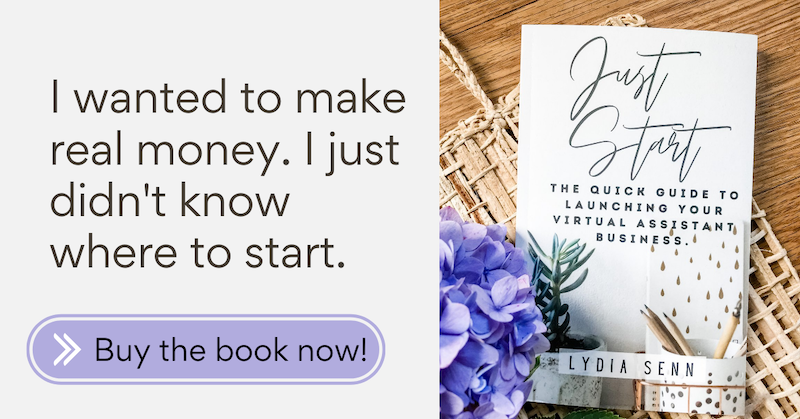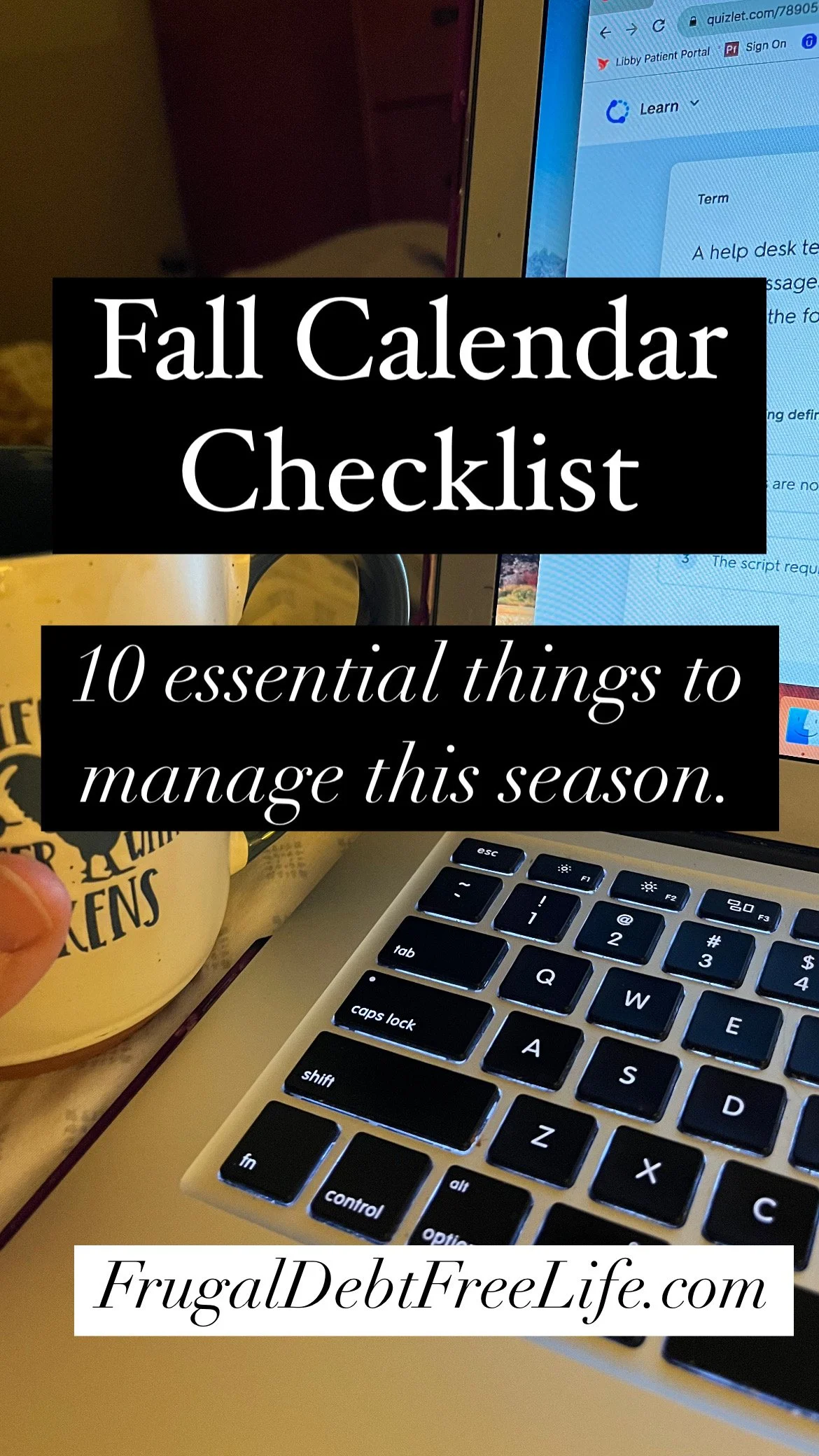8 things I wish I knew about money in my 20s
/Today I want to share with you 8 things I wish I had done with my money in my 20's. Some of these were things that, because I was just young, I didn't think impacted me. Some were things that I wasn't super educated about. And some were things that I was just lazy about.
I'm not making this list to shame myself or you. I'm hoping that maybe a 22-year old will stumble across this video, and Aunt Lydia can tell them not to do these things.
1. Waiting to invest
I put money into my company's 401K, but I only did a little bit, enough to get the match, like 2%. I didn't invest in index funds. I didn't open an IRA. I just did the very bare minimum.
I was under the common misconception that you have to have a lot of money to invest and that you have to have this super mathematical brain filled with innate investing knowledge. Neither one of those things is true.
In fact, the younger you start, the better off you'll be. If you're just putting a little bit in your retirement or in investing when you're young, that grows. Compound interest. It grows. And over the course of your lifetime -- even if you put in less -- the fact that you started earlier means that you're at an advantage over a 35-year old who started later.
Start with your match, grow from there, open some accounts outside of your employer, learn how to roll things over (if you lose your job or if you leave that company for something better). Start gaining some knowledge.
2. Thinking I'm too uneducated about money to learn
I thought I was too uneducated about money to learn. That this was something that only smart, super sophisticated people know how to do. Or that I needed to work with an expert.
Well, yes, working with an expert is great. Hiring a financial adviser to coach you through things is certainly great. But you don't have to be an expert. And while educational inequality exists, we also live in an age of information when we can pick up a phone, google anything, and find the answers.
And so I feel like, for some of us, we don't have an excuse anymore because any answer we want is right there at our fingertips. Research for yourself, advocate for yourself. And then when you are in a position where you are financially literate, advocate for those who aren't, and teach them.
3. Not making savings a habit
When that paycheck hits, things need to be divided up. One of the first numbers that comes off the top needs to be savings even when you're in debt. Even when you're in debt, keep saving money, even if it's just 5, 10, 20 dollars a week. If you saved 20 dollars a week, at the end of the year, you have 1,040 dollars.
When we make savings a habit, we're prioritizing ourselves when it comes to money. I don't know who originated this quote that I say all the time: "The only money your future self has is the money that you give her."
And so it's important, in these years while we still have energy and motivation, to put money aside for when we can't. For the future person that can't work, doesn't have motivation and energy, that is dependent upon us to make wise choices now.
4. Thinking I deserved it
"I work hard; I deserve this."
Now, yes, we do need to reward ourselves for hard work. This is not me saying that you work 40-60 hours a week, come home to a dark house, don't go anywhere, don't do anything fun. (Although right now, aren't we all doing that? Not going anywhere doing anything fun?)
It doesn't mean you can't enjoy your lives intentionally. You can go on vacation. You can buy a new couch. You can go to concerts (when they reopen if they ever do). You can do whatever you want to do with your money. But do it with intention. Do it with "I am worth the time that it takes to save up for this."
Flip the narrative from "I work hard; I deserve this" to "I am worth the time and effort it takes to save up this money for what I really want."
5. Not using credit wisely
I don't think credit cards are evil. I think that they are a tool. But in the wrong hands they are a weapon against ourselves.
I am not always the "right hands." If I had learned younger how to manage credit wisely and how to use it as a tool, I think I would have fallen into some better habits than I did. I wasn't raised in a household where credit was villainized. My parents have credit cards.
They never held debt on those credit cards. I'm the type of person that if I don't see that money physically leave my bank account, I don't feel accountable for it. And I need accountability even if I'm just accountable to myself. I need to see that number in my ledger get smaller.
Whereas with a credit card, it's not the same. You can log in and look, but you get a bill at the end of the month. Whereas with my bank account, I can see that number get smaller. I reconcile it every day. I make sure that I have enough to cover my expenses.
It's the same reason that I don't use cash envelopes. I don't have immediate accountability to see that number get smaller.
But I have learned that you have to have a credit score to survive. Yes, you can get a mortgage without one. We had a manually underwritten mortgage. Now that I'm older and wiser and have moved on in my life, I know how important a credit score is and why it's important to maintain a good one. I know people call it an "I love debt" score, but there are other ways outside of debt to have a good credit score.
6. Thinking finance was boring
Anytime someone asks, "How do I get my husband or boyfriend on board with budgeting?" I say, "I don't know how to get me on board because I was bored." Money and finances bored me. But when you tell me all the stuff I can do with money when I have it, and I start breaking it down in goals -- oh yes, that makes sense. Money isn't something that's boring for well-educated Ivy League people. Anyone can manage money. Anyone. Some of the smartest, most financially-savvy people I know have no higher education.
7. Not prioritizing paying off debt
We were in debt for a long time before we started buckling down and prioritizing student loans and all the other debts we had. I wish that we had started as soon as we graduated. I didn't have student loans. I had some scholarships, I worked, and my parents had put a little bit aside for me. My husband had a massive amount of student loans. He had scholarships, but he still took out student loans to pay for living expenses, which is a really bad idea.
If you are fortunate enough to have scholarships that cover your actual tuition, don't take out extra just for living expenses. I understand why student loans exist, and I think that we all should work to avoid them, but I also get that that is not reasonable or feasible for a lot of the population. Let's live in reality. But taking out more than we need is unwise. Let's not do that, please.
8. Not talking about finances with my husband for a very long time
I didn't talk about finances with my husband for a very long time. I didn't want to. Arguing about money isn't great, but arguing about it is certainly better than pretending your financial problems don't exist. Pretending your financial problems don't exist isn't going to make them go away. Having hard conversations, as bad as it feels, is important.
If you have trouble talking to your spouse about money, I highly recommend that you go check out His and Her Money. That's a great channel with lots of resources about that.
I'm not the person to ask because my situation was in reverse, but I can tell you that one of the ways that helped was that my husband was very respectful to me. He was respectful of my opinion. He knew that if he pushed me, I would not listen. He didn't force things on me. He just simply led by example. He didn't wait for me to catch up. At the time, we didn't have joint bank accounts. He started doing things with his money that made sense, and I caught on and started doing the same.
Not everyone is going to do that. Not everyone is going to listen. That's how it is when you're a flawed human living with another flawed human. You can't force an adult to do something they don't want to do. That's something that a lot of couples run into.

























